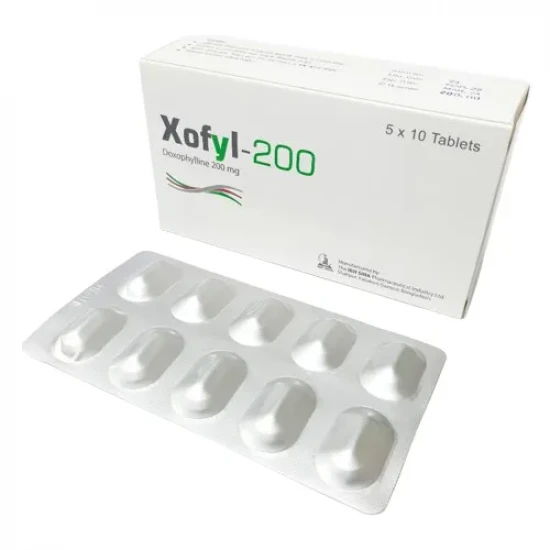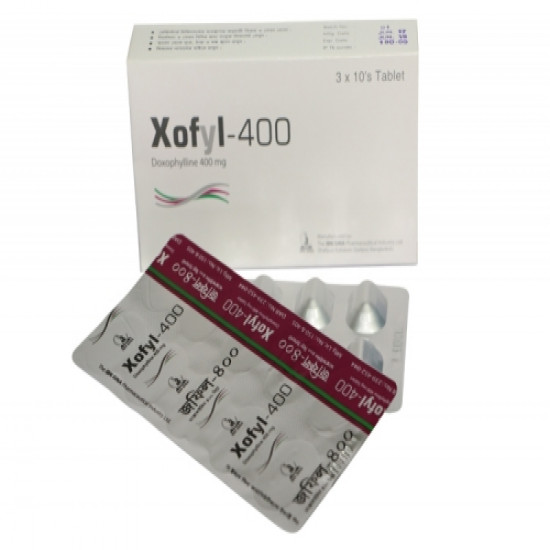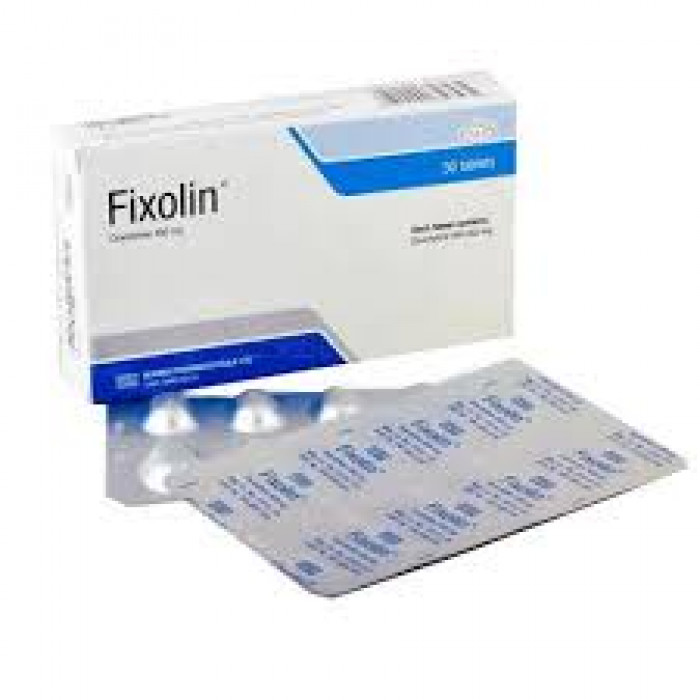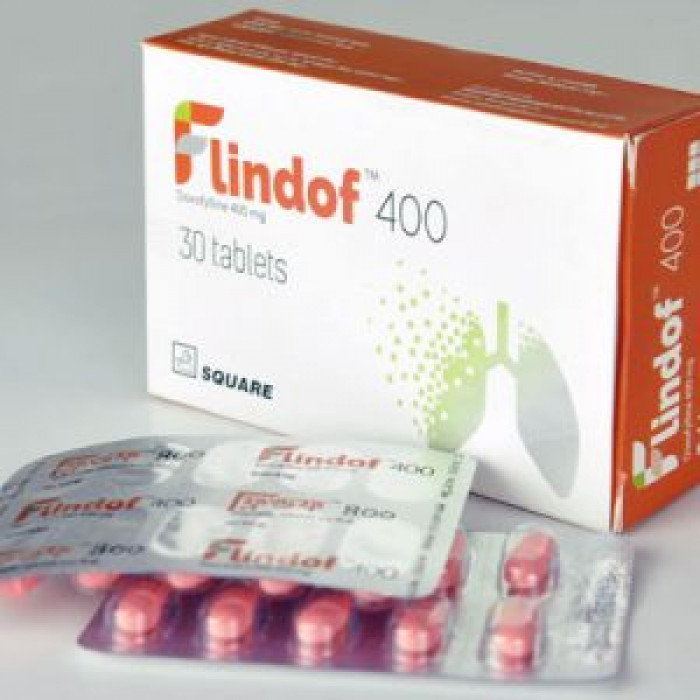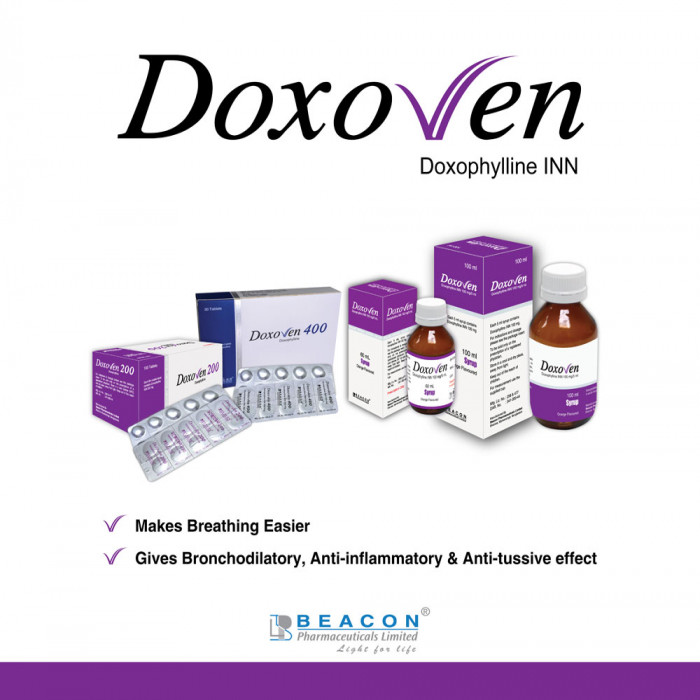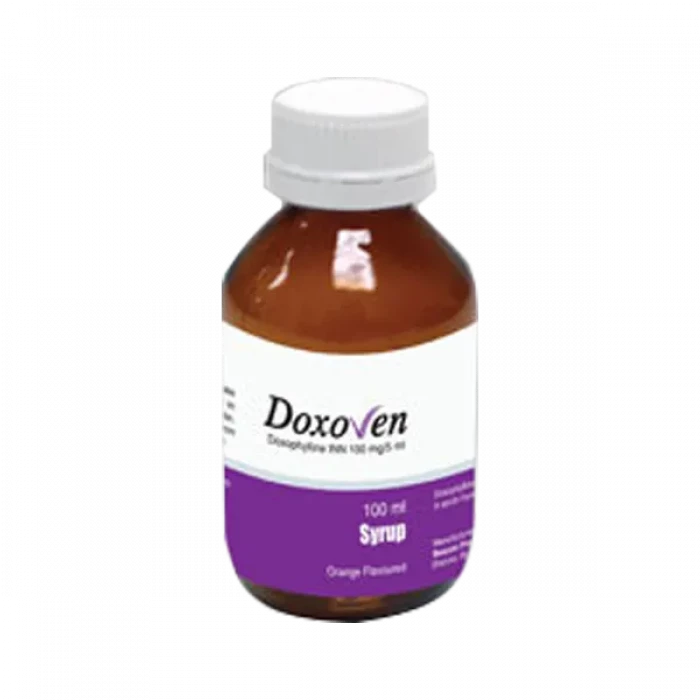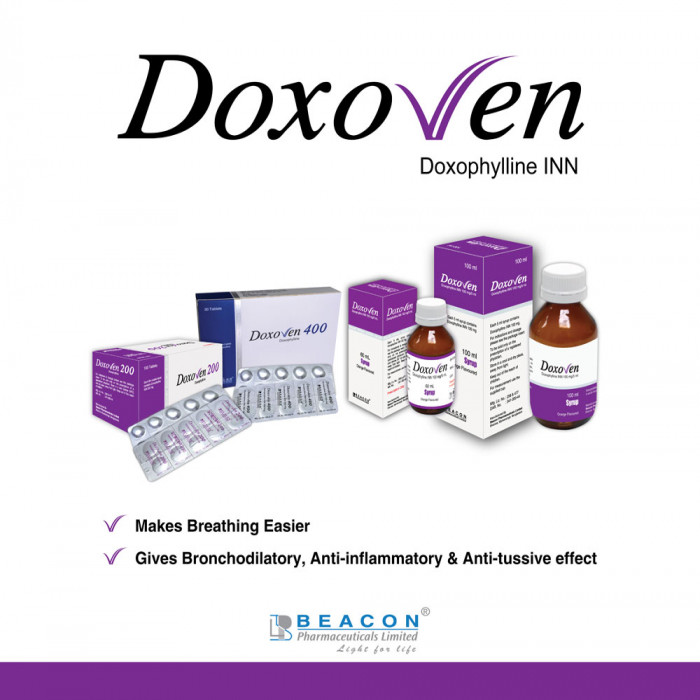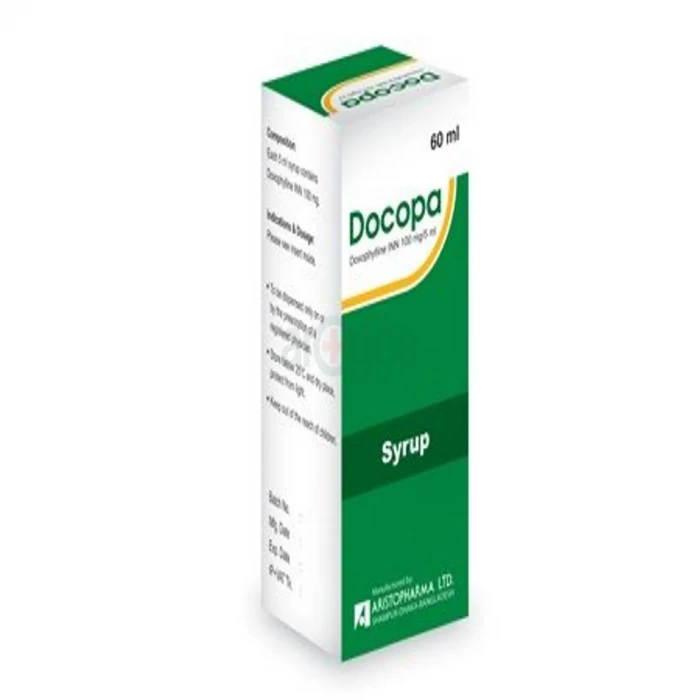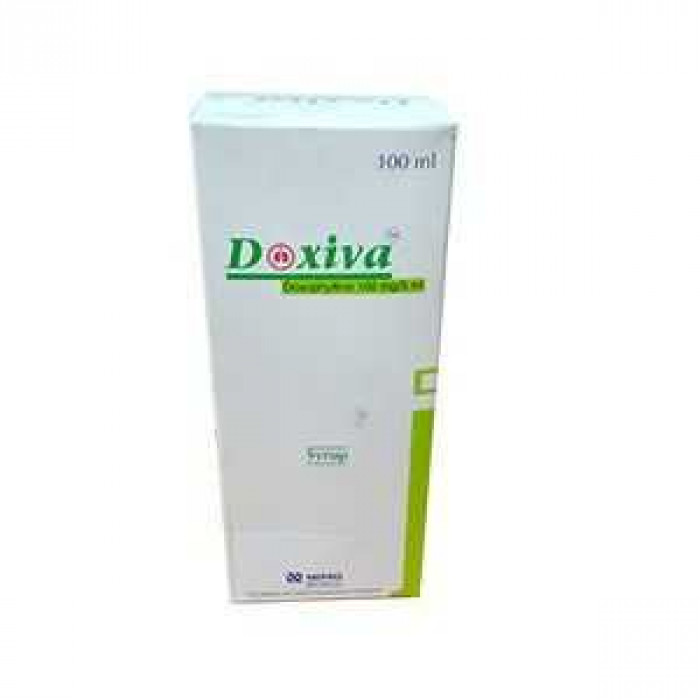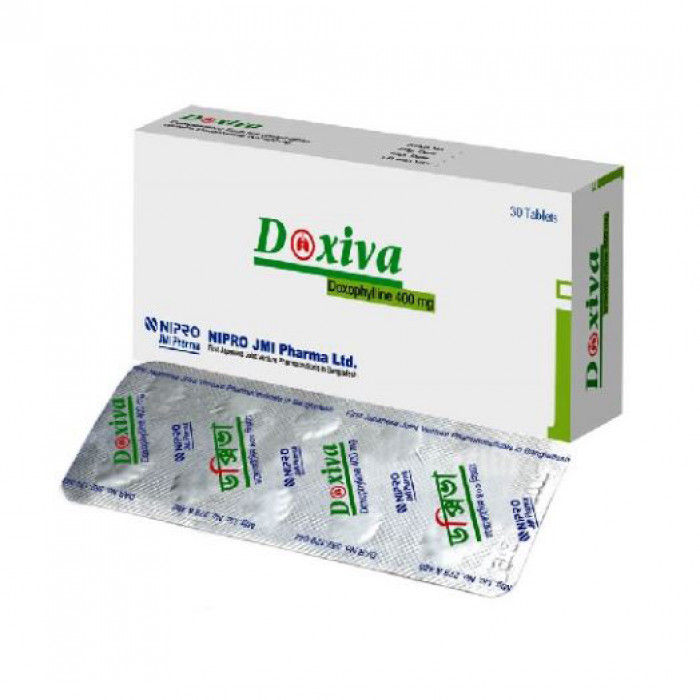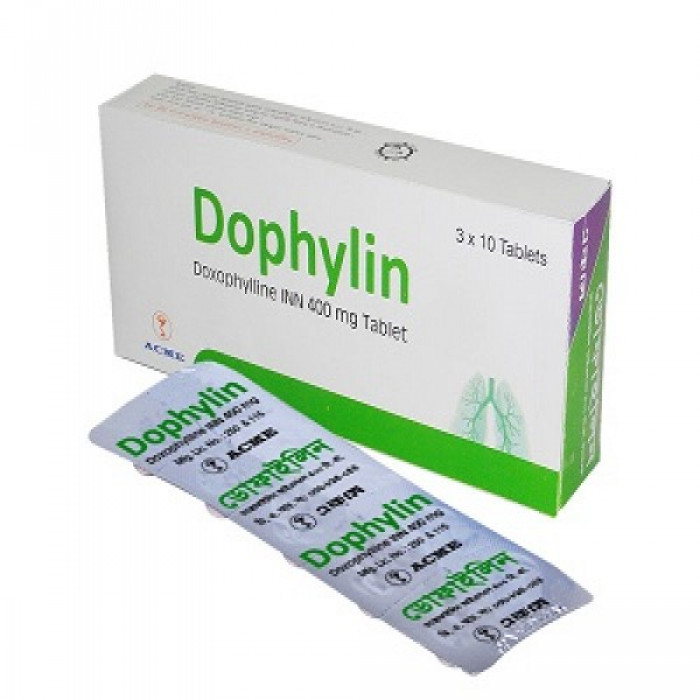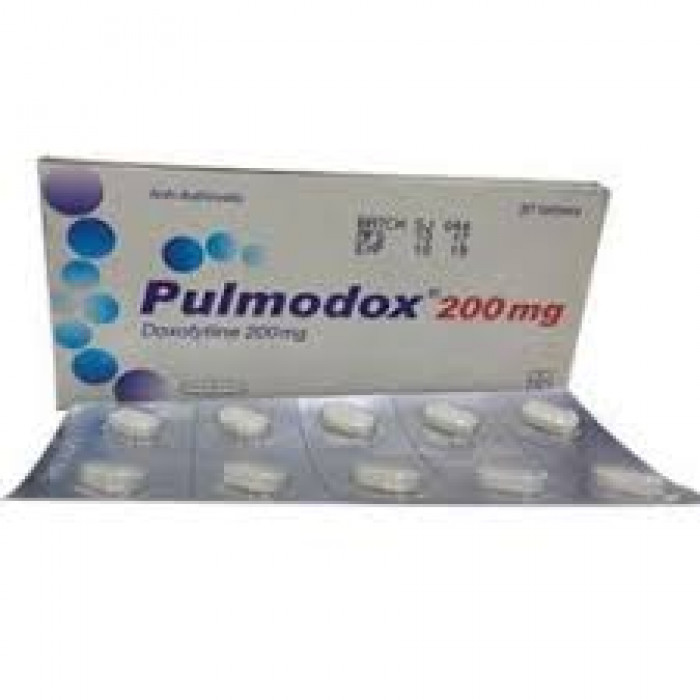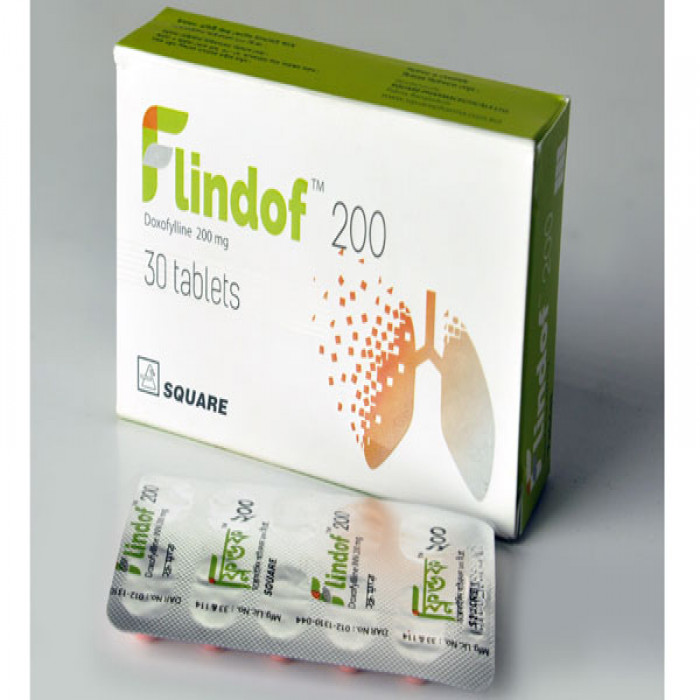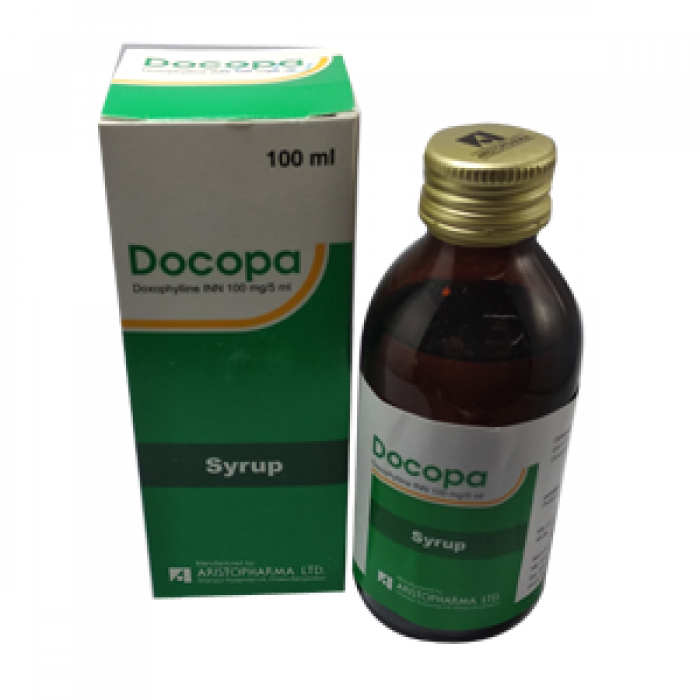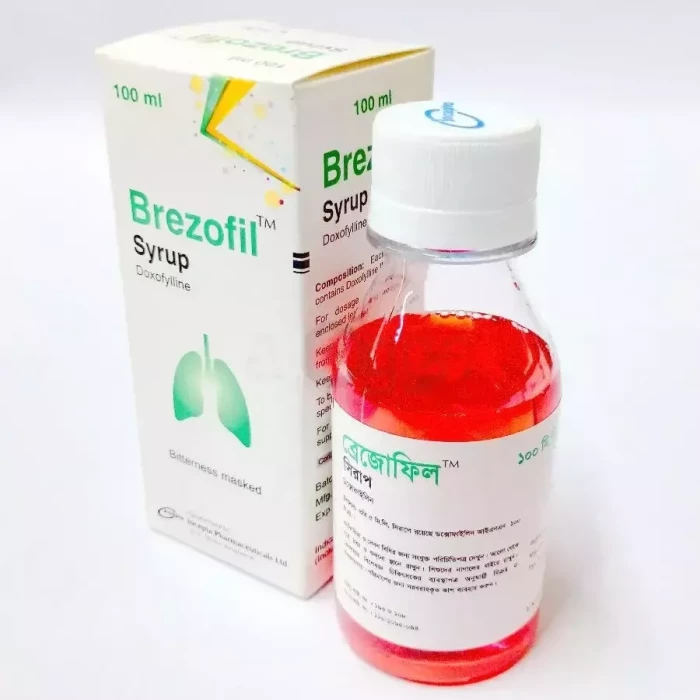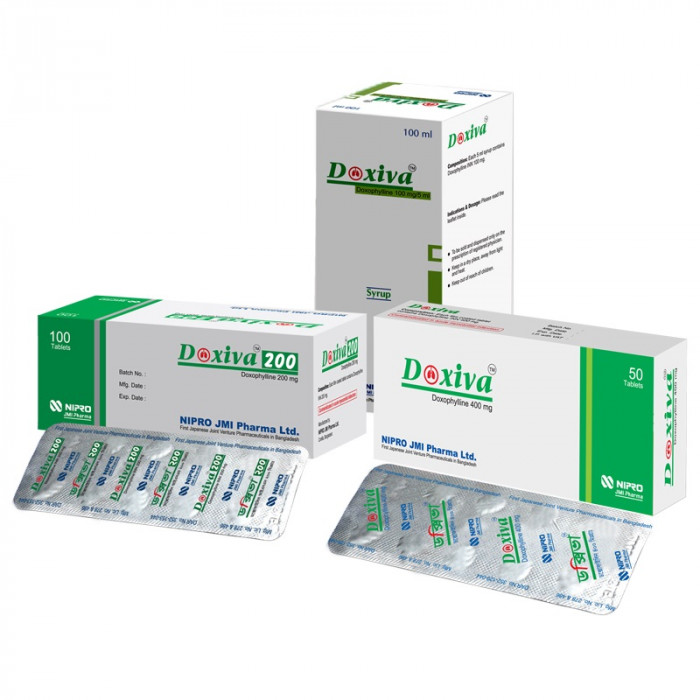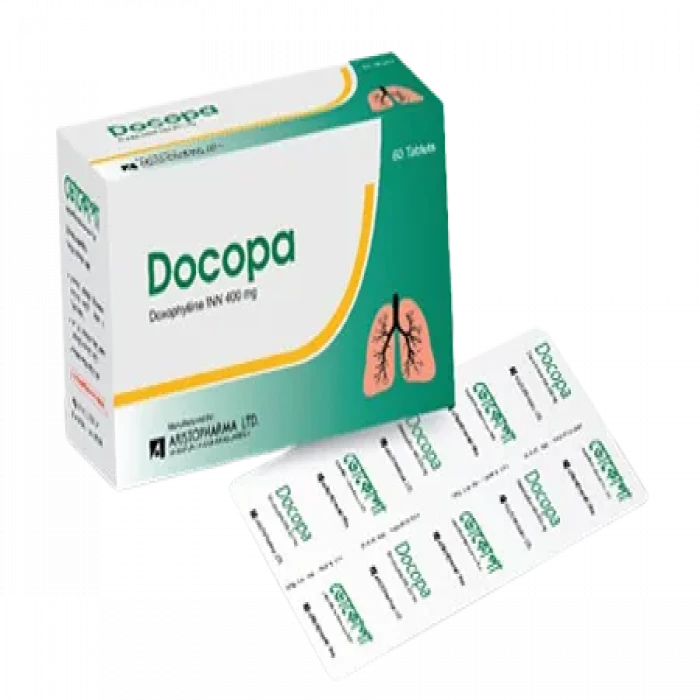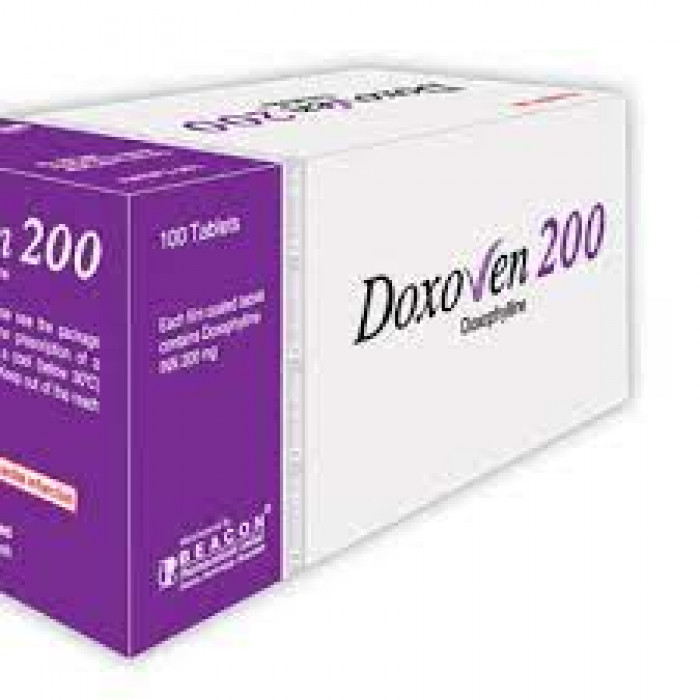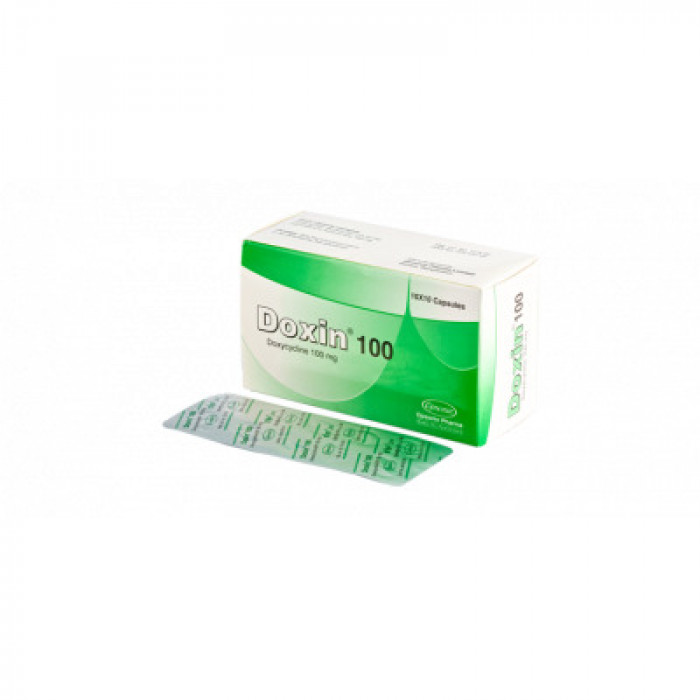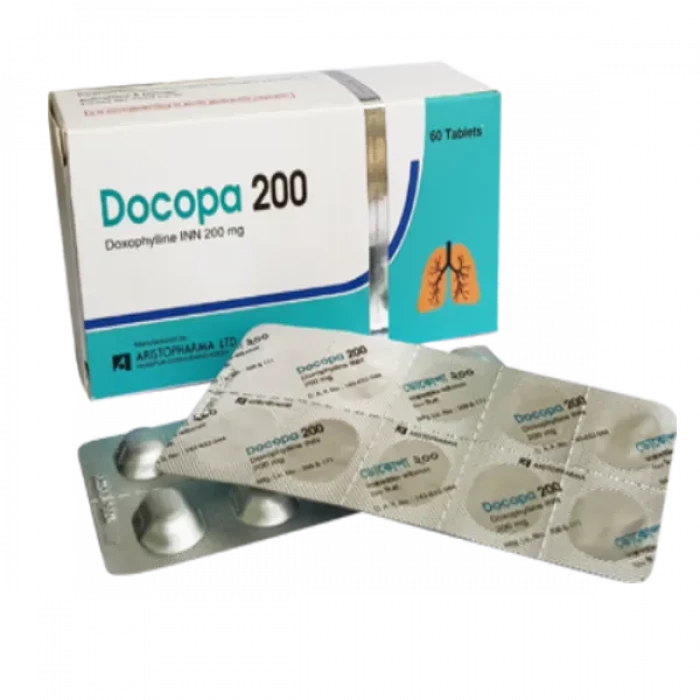
✔ 100% Authentic Product
👁️ Currently Viewing 11361
Docopa 200mg is a prescription medication used to treat respiratory conditions such as Asthma and chronic obstructive pulmonary disease (COPD).
📄Prescription Required
Discount
Price: ৳ 76
MRP:
৳
80
5%
Off

100% Genuine Products, Guaranteed

Safe & Secure Payments, Always

Fast, Secure & Efficient Delivery

Proper Packaging
 Cash on Delivery - All over Bangladesh
Cash on Delivery - All over Bangladesh Regular Delivery - 12-24 Hours, Dhaka City* Charge Tk.39-59
Regular Delivery - 12-24 Hours, Dhaka City* Charge Tk.39-59 Regular Delivery - 24-48 Hours, Other Cities* Charge Tk.99-110
Regular Delivery - 24-48 Hours, Other Cities* Charge Tk.99-110
 ফ্রি ডেলিভারিঃ - ৯৯৯ টাকা+ অর্ডারে, ঢাকা
শহরে
ফ্রি ডেলিভারিঃ - ৯৯৯ টাকা+ অর্ডারে, ঢাকা
শহরে ফ্রি ডেলিভারিঃ - ২৯৯৯ টাকা+ অর্ডারে, ঢাকার
বাহিরে
ফ্রি ডেলিভারিঃ - ২৯৯৯ টাকা+ অর্ডারে, ঢাকার
বাহিরে
100% Genuine Products, Guaranteed
Safe & Secure Payments, Always
Fast, Secure & Efficient Delivery
Proper Packaging
 Cash on Delivery - All over Bangladesh
Cash on Delivery - All over Bangladesh Regular Delivery - 12-24 Hours, Dhaka City* Charge Tk.39-59
Regular Delivery - 12-24 Hours, Dhaka City* Charge Tk.39-59 Regular Delivery - 24-48 Hours, Other Cities* Charge Tk.99-110
Regular Delivery - 24-48 Hours, Other Cities* Charge Tk.99-110 ফ্রি ডেলিভারিঃ - ৯৯৯ টাকা+ অর্ডারে, ঢাকা
শহরে
ফ্রি ডেলিভারিঃ - ৯৯৯ টাকা+ অর্ডারে, ঢাকা
শহরে ফ্রি ডেলিভারিঃ - ২৯৯৯ টাকা+ অর্ডারে, ঢাকার
বাহিরে
ফ্রি ডেলিভারিঃ - ২৯৯৯ টাকা+ অর্ডারে, ঢাকার
বাহিরে
✅ Description:
Doxophylline is used to treat respiratory diseases such as asthma and chronic obstructive pulmonary disease (COPD). It belongs to a class of drugs called methylxanthines and works by relaxing the airways and improving breathing.
Doxophylline helps to increase the flow of air into and out of the lungs, making it easier to breathe and reducing symptoms such as wheezing, coughing, and shortness of breath. It may be used in combination with other medications, such as bronchodilators, steroids, and antibiotics, to manage the symptoms of respiratory diseases.
Safety Advices

Alcohol
CONSULT YOUR DOCTOR
If you're taking Docopa 200mg, it's recommended that you talk to your doctor before consuming alcohol.

Pregnancy
CONSULT YOUR DOCTOR
The safety of Docopa 200mg during pregnancy is not well established.

Breastfeeding
CONSULT YOUR DOCTOR
The safety of Docopa 200mg during breastfeeing is not well established.

Driving
SAFE
It is not anticipated that taking Doxophylline will have any impact on your ability to drive a vehicle or operate heavy machinery.

Kidney
CONSULT YOUR DOCTOR
Please consult with your doctor if you have any kidney diseases.

Liver
CONSULT YOUR DOCTOR
Please consult with your doctor if you have any liver diseases.
✔️ Uses of Docopa 200:
- Asthma
- Chronic obstructive pulmonary disease (COPD).
✔️ Side Effects of Docopa 200:
Doxophylline rarely causes serious side effects, however possible side effects are similar to taking an excessive amount of caffeine. These include
- Nausea
- Vomiting
- Headache
- Upset stomach
- Heartburn
✔️ How to use Docopa 200:
Take the medication orally: Doxophylline 200/ Docopa 200 is taken by mouth. It can be taken with or without food.
✔️ Quick Suggestions:
- Take the medication orally: Docopa 200 is taken by mouth. It can be taken with or without food.
- Do not crush or chew the tablets: Docopa 200mg should be swallowed whole, as crushing or chewing the tablets can alter the absorption and effectiveness of the medication.
- Monitor for side effects: Common side effects of Docopa 200 may include headache, nausea, vomiting, heartburn, and tremors. If you experience any side effects or if they become severe, it's important to contact your doctor.
✔️ Indications of Docopa 200:
Docopa 200 is used to treat and prevent asthma and chronic obstructive pulmonary disease symptoms (a lung disorder in which the flow of air to the lung is blocked). It aids in relaxing the muscles of the airways, widening them, and making breathing easier. Docopa can be consumed with food in the evening. To get the most out of it, take it at the same time every day. The dose and frequency of administration are determined by the purpose of the medication. Your doctor will determine how much treatment you require to alleviate your symptoms.
✔️ Pharmacology:
Doxophylline is a relatively new bronchodilator. The presence of a dioxolane group in position 7 distinguishes it structurally from Theophylline. Doxophylline relaxes bronchial smooth muscle by specifically inhibiting phosphodiesterase 4. Doxophylline appears to have a lower affinity for adenosine e A1 and A2 receptors than Theophylline, which may account for the drug's improved safety profile. Doxophylline has been shown to inhibit the product platelet-activating factor (PAF) as well as the formation of leukotrienes.
✔️ Dosage and Administration of Docopa 200:
- Elderly: Take a 200 mg tablet two or three times per day.
- Adults: Take one 400 mg tablet two or three times per day, or as directed by a doctor.
- Children: >12 years old: 10 mL syrup or 200 mg tablet two or three times per day.
- 6-12 years old: 6-9 mg/kg body weight twice daily; if body weight is 10 kg, 3 ml (60 mg) twice daily or as prescribed by the physician.
- Doxophylline SR tablet is to be taken once daily or as prescribed by the physician if the required daily dose of Doxophylline is 400 mg.
✔️ Interaction of Docopa 200:
Doxophylline shouldn't be taken at the same time as any other xanthine derivatives. Ephedrine and xanthine have been demonstrated to interact negatively. Oleandomycin, lincomycin, clindamycin, allopurinol, cimetidine, ranitidine, propranolol, and the influenza vaccine are examples of medications that, along with another xanthine, may impair the liver's ability to eliminate xanthine, raising blood levels. There is no evidence to suggest a connection between adverse events and doxophylline blood concentrations.
✔️ Contraindications of Docopa 200:
Doxophylline is not advised during a myocardial infarction that is acute. It is also not recommended for use by those who have hypotension, nursing mothers, and individuals who have displayed an allergy to its ingredients.
✔️ Pregnancy & Lactation:
Animal reproduction studies demonstrate that doxophylline does not impair fertility or harm fetuses when administered to pregnant animals. However, due to the limited human experience with xanthine during pregnancy, pregnant women should only get them in an emergency. Breastfeeding women should not use doxophylline.
✔️ Precautions & Warnings of Docopa 200:
The half-life of xanthine derivatives is influenced by a number of recognized factors. A delay might occur in patients with liver disease, congestive heart failure, and those using specific medications like erythromycin, oleandomycin, lincomycin, allopurinol, cimetidine, propranolol, and the influenza vaccination. In these situations, a lower dose of doxophylline can be necessary. An increase in clearance and a reduction in the mean half-life may be brought on by smoking, phenytoin, and other anticonvulsants. Greater Doxophylline doses may be necessary for these conditions.
✔️ Storage Conditions of Docopa 200:
Keep in a dry place away from light and heat. Keep out of the reach of children. Doxophylline should be used only on the prescription of a specialist physician.
⚠️Disclaimer:
At ePharma, we’re committed to providing accurate and accessible health information. However, all content is intended for informational purposes only and should not replace medical advice from a qualified physician. Please consult your healthcare provider for personalized guidance. We aim to support, not substitute, the doctor-patient relationship.




